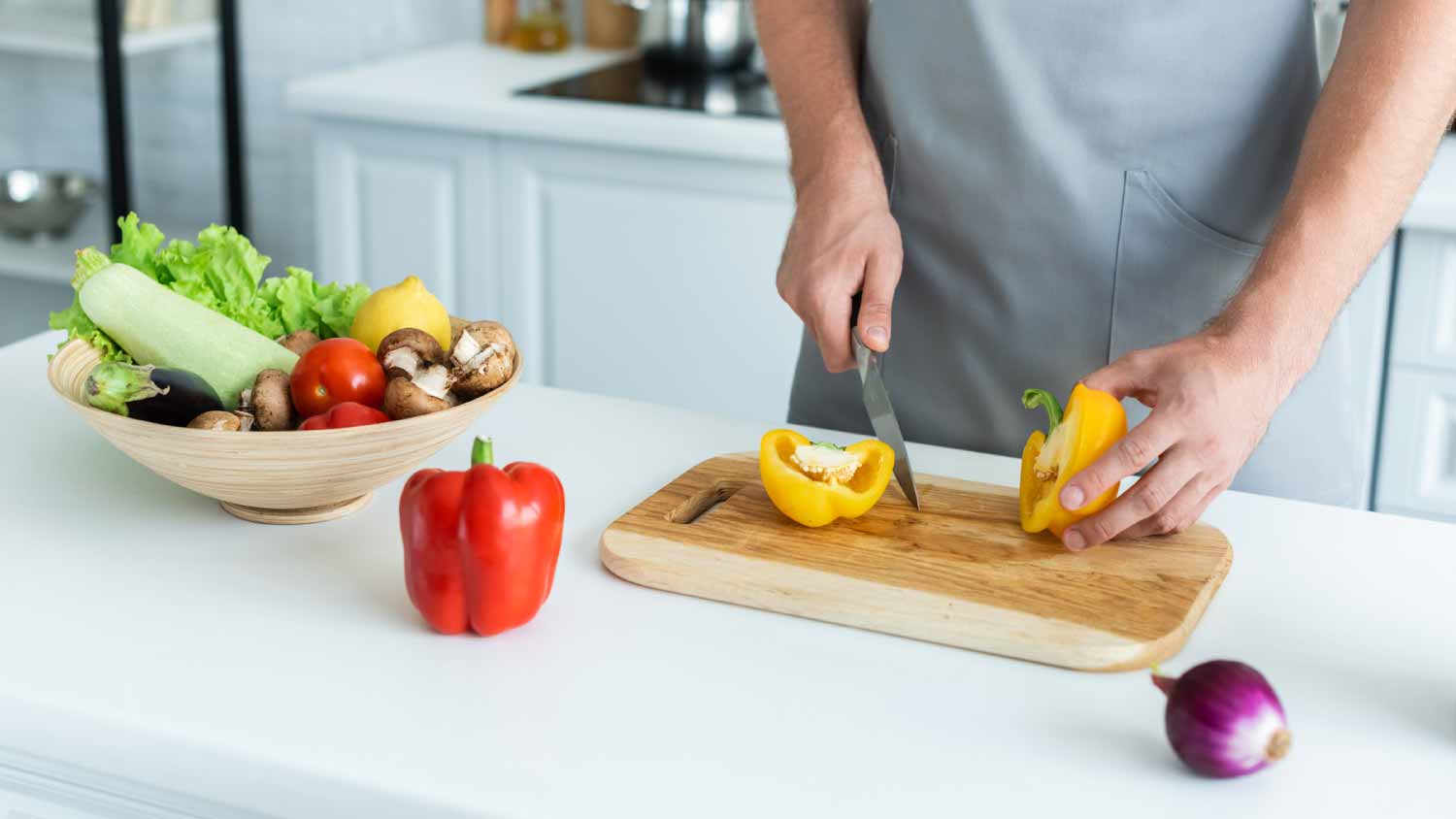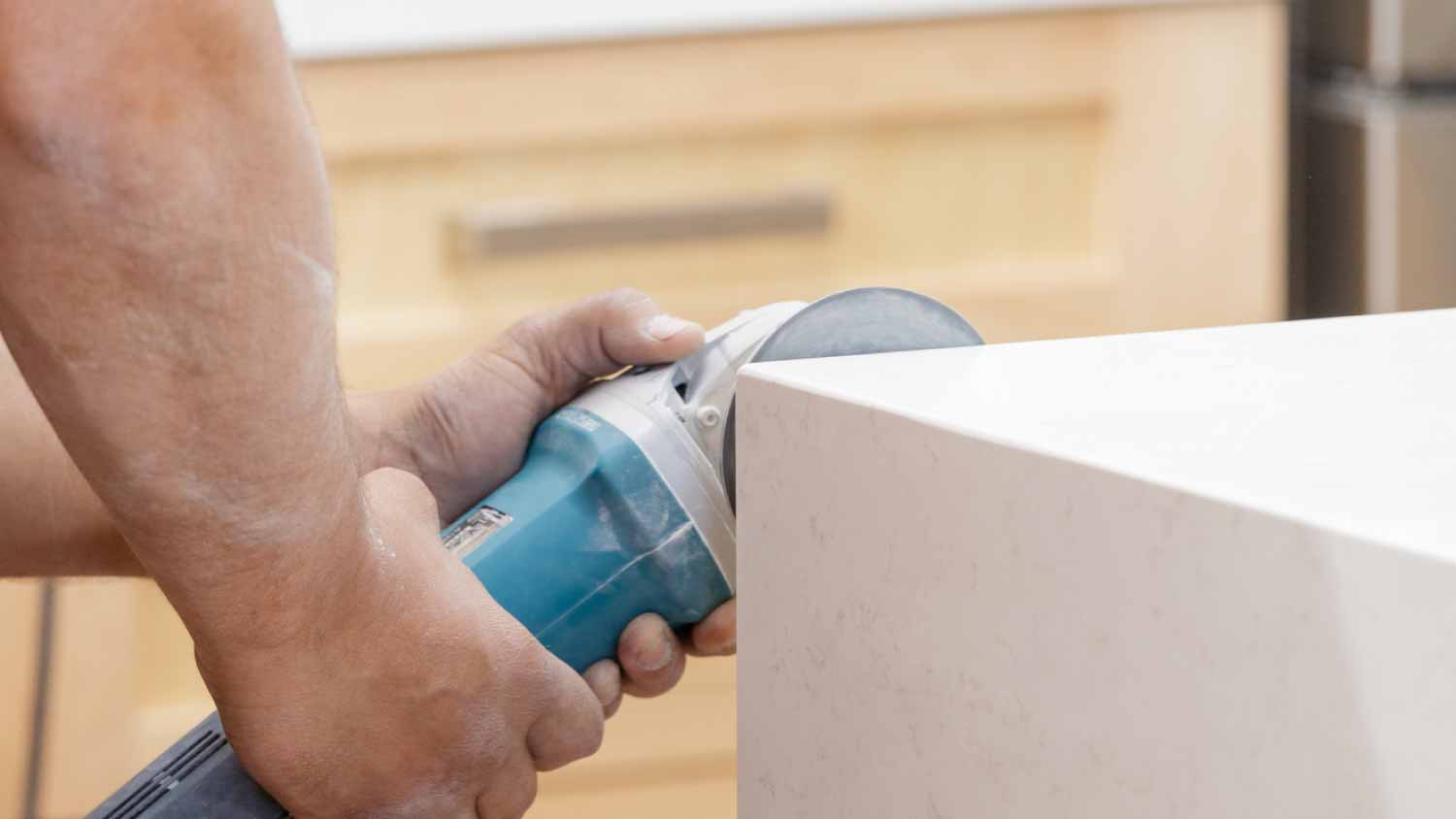
Are you getting close to deciding on Caesarstone® countertops for your home? Discover all the details behind Caesarstone® countertop costs in this guide.
Discover the true life span of quartz countertops


Quartz countertops come in many styles and designs, making them a beautiful and durable addition to any kitchen. But how long do quartz countertops last? This guide explores the factors that affect quartz’s lifespan and the ways you can maintain your countertop to maximize its lifespan.

Quartz is an engineered stone made from about 90% crushed stone (such as quartz, granite, or marble) and 10% resin. This results in an incredibly strong countertop material that’s naturally nonporous and more durable than solid stone countertops. For this reason, quartz countertops can last a lifetime.

Because quartz is such a durable material, it’s likely to last for decades, no matter how you treat it. However, a few factors may affect how long your countertops will last.
You might be tempted to choose the cheapest quartz countertops you can find, but high-quality quartz will often last longer than low-quality quartz. Check reviews to see if customers report any issues with their quartz countertops. Look for countertops in your budget from established and well-known manufacturers like Silestone, Caesarstone, or Cambria.
Quartz is incredibly heavy, weighing between 20 and 25 pounds per foot. Although installing the countertops yourself will save money on quartz countertop installation costs, you risk damaging the material and injuring yourself. A countertop installation company has the right equipment to get the material into your home safely and to install it without damaging it. Over time, this can extend the lifespan of the countertops.
The location where you install the quartz countertops can also affect how long they last. Quartz can be damaged by sunlight, so we don’t recommend installation in an outdoor kitchen. However, quartz can also become discolored if installed in a kitchen or bathroom with big windows and abundant natural light.
Quartz is a relatively low-maintenance countertop material that is naturally nonporous and will never require sealing. However, it’s essential to take proper care of the surface if you want it to last the lifetime of your kitchen. Quartz is susceptible to heat damage, so always use hot pads or trivets under pans. Clean the countertops regularly with a mild cleaning solution, avoiding acid-based products like vinegar or lemon juice, which can cause damage. Buff out any scratches with polish to keep the surface like new.
Although quartz countertops can last the lifetime of your kitchen, there are some signs to look out for that suggest replacement is needed or desired:
Visible damage on the surface that doesn’t go away when polished
Noticeable heat-damaged spots
Yellowing from sun exposure
Design is outdated, and you want a change
Planning to sell your home and want to maximize its selling potential
Need more countertop space and plan on a major kitchen remodel
Maintaining quartz countertops is about as easy as it gets. Simply follow the tips below to keep your quartz countertops looking good.
Clean your countertops often using a soft sponge or microfiber cloth and a gentle cleaner like dish soap. Harsh or abrasive cleaners that are highly acidic or alkaline can damage quartz countertops.
Although quartz is nonporous, it’s still best practice to wipe up spills right away—especially if you have a light-colored countertop and spill a dark liquid like tomato sauce, red wine, or coffee. The longer these spills sit on the countertops, the higher their chances of leaving a mark.
Quartz can sustain damage from contact with hot surfaces like skillets and pans. Always use a trivet or hot pad underneath a pan before placing it on your quartz countertops.
Since quartz is so hard and durable, you might assume you can chop your veggies directly on the countertop. However, quartz is not invincible, and knives can cause scratches and other damage to the surface. Always use a chopping board rather than cutting directly on the quartz.
Depending on the manufacturer, quartz countertop warranties last 10 to 15 years. If you notice any damage, fading, stains, or other blemishes during that time frame, you can file a claim to have the repair covered by the warranty. Check the warranty’s fine print before filing a claim since some damage may not be covered.

In many cases, damaged quartz countertops can be repaired by simply buffing and polishing scratches and dings. However, replacing it may be the best choice if you have extensive heat damage, sun damage, or large gouges in the countertop. Learn more about refinishing vs. replacing countertops to determine the right course of action.
From average costs to expert advice, get all the answers you need to get your job done.

Are you getting close to deciding on Caesarstone® countertops for your home? Discover all the details behind Caesarstone® countertop costs in this guide.

The cost of porcelain countertops is affected by many factors, primarily the material's type (tile or slab) and finish, as well as your counter’s size and shape.

Marble countertops have yet to go out of style, and likely won't any time soon. This strong, durable, and stunning material melds with most kitchen, bathroom, and even dining room designs. But how much do marble countertops cost to install?

Stone countertops are a big investment, so make sure you hire the right contractor to cut them. Here are tips on choosing the right on-site granite cutter.

Choosing a countertop material is a big decision. We break down the pros and cons of marble vs. granite countertops to help you decide.

Which material is better for your kitchen: quartz vs. granite countertops? This guide breaks down the pros and cons of each to inform your decision.